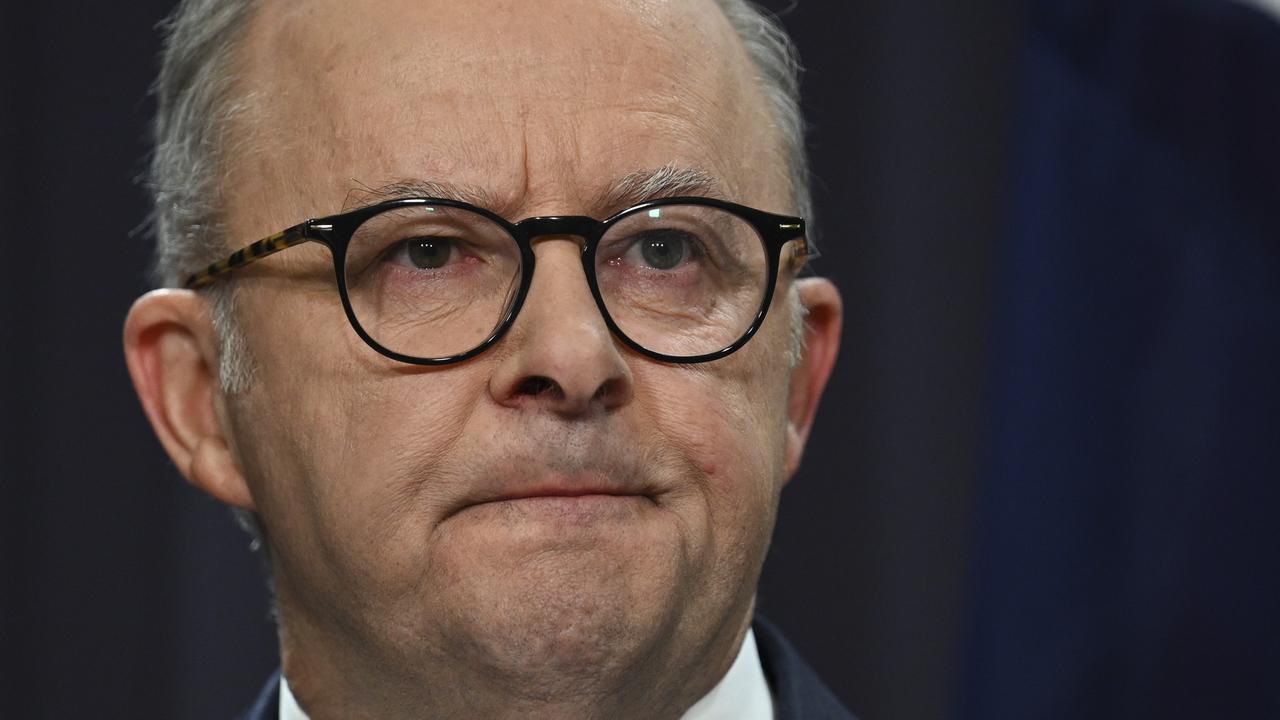Voters have given the tick of approval to Anthony Albanese’s plan to use taxpayer subsidies for clean energy projects.
However, the Prime Minister has failed to convert support for the Future Made in Australia policy to support for Labor, according to the latest Newspoll conducted for the Australian.
Labor still leads the Coalition on a two party preferred basis, 51 per cent to 49 per cent – uncharged from the previous month.
It suggests that if an election were held today Labor would maintain power but without any boost from the announcement of its signature manufacturing policy.
But it is not all good news for the government.
A separate resolve poll conducted for the Nine Newspapers suggested the backlash from the rising cost of living had cut support for Labor – tying it with the Coalition on a two party preferred basis.
Environment Minister Tanya Plibersek insisted Labor was focused on easing the pressures.
“I think people are doing it tough and it is a reflection of the fact that it is hard to make ends meet,” she told Seven.
Labor’s primary vote has remained steady – up just one point to 33 per cent and is back in line with the 2022 election result.
Support for the Coalition also grew by one point back up to 38 per cent, up two percentage points higher than the election that saw it punted from office.
The Greens fell one point to 12 per cent, and minor parties and independents were also down a point to 10 per cent.
Opposition Leader Peter Dutton still trails Mr Albanese, 48 to 35 per cent, as preferred Prime Minister despite his one point improvement.
Nationals frontbencher Barnaby Joyce defended the Coalition leader’s lagging support when asked why people weren’t throwing their support behind Mr Dutton.
“The way you get elected is you get the way you get elected is you get the majority of 151 votes. It is not really a vote about the leaders, as such,” he told Seven.
The polls come off the back of the announcement of Mr Albanese’s plan to funnel taxpayer funds into loans and subsidies to projects that helped Australia transition to clean energy.
The Prime Minister argued that Australia risked falling behind the rest of the world if it did not follow the US, EU, Japan and South Korea in providing direct government investments, tax breaks or other incentives to business.
Voters agreed with the sentiment backing the plan 56 per cent to 38 per cent.
Just 6 per cent of people said they didn’t know when asked if the government should get involved.
The Newspoll survey of 1236 voters was conducted online between April 15 and April 18.
